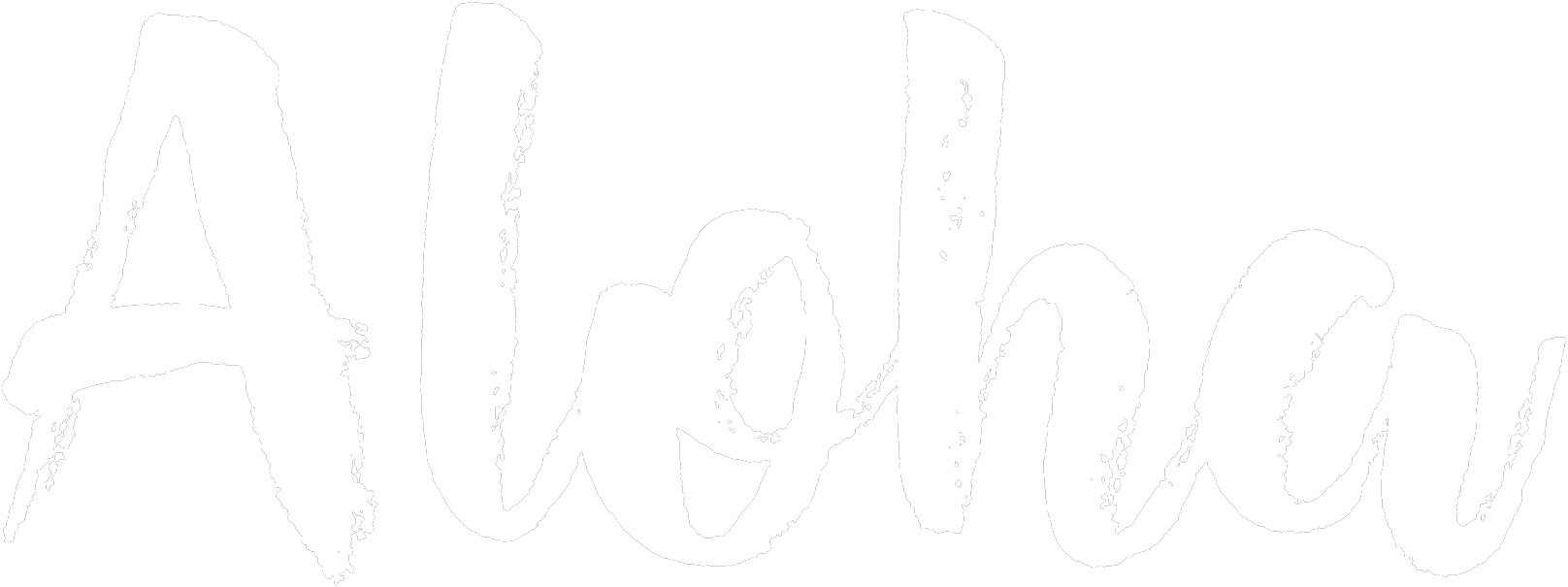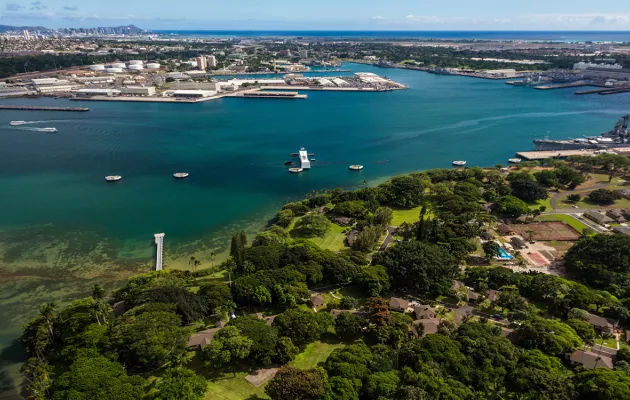

 Puʻuloa’s Keeper
Puʻuloa’s Keeper
Puʻuloa’s Keeper
In Hawaiʻi places have several layers of names attached to them, which point to different times in Hawaiʻi's history.
Ke ʻawa lau o Puʻuloa, the bay and lochs that make up the complex most people know simply as Pearl Harbor, was once the home of the guardian sharks, Kaʻahupāhau and her brother Kahiʻukā. In Hawaiian custom, sharks were cared for by families who fed them and kept their bodies free of barnacles. Sharks in turn were revered because they aided fishermen by herding fish into canoes, and carried people whose canoes had been damaged or swamped back to shore. Some sharks, like Kaʻahupāhau, fought wars to protect people from the attack of man-eating sharks. Puʻuloa was the site of the largest and fiercest battle between the guardian sharks of Oʻahu and marauding man-eating sharks from the island of Hawaiʻi.
Mikololou and his cohort of sharks from Hawaiʻi arrived at Puʻuloa, where they encountered Kaʻahupāhau guarding the entrance of Pearl Harbor. She had the ability to change her body into a strong net that was hard to tear, and when she heard one of Mikololou's sharks remark upon the “delicious looking crabs here,” she knew that they meant to eat the people under her protection. She turned herself into a net and ensnared the Hawaiʻi sharks. The fisherman hauled them to shore, where the trespassing sharks died of exposure.
Kaʻahupāhau's cave was located near West Loch, while her brother lived in an underwater cave near Ford Island. In 1913, when the U.S. Navy built a dry-dock just over her old home, it collapsed, and they were forced to substitute a floating dock in its place. People assumed it was because the guardian shark still inhabited that area.
Another name for Pearl Harbor bears the trace of this history: Ke alahula o Kaʻahupāhau – the trail of Kaʻahupāhau, a name which describes the guardian shark's constant movement, ever vigilantly guarding the people of Oʻahu.
Ke ʻawa lau o Puʻuloa, the bay and lochs that make up the complex most people know simply as Pearl Harbor, was once the home of the guardian sharks, Kaʻahupāhau and her brother Kahiʻukā. In Hawaiian custom, sharks were cared for by families who fed them and kept their bodies free of barnacles. Sharks in turn were revered because they aided fishermen by herding fish into canoes, and carried people whose canoes had been damaged or swamped back to shore. Some sharks, like Kaʻahupāhau, fought wars to protect people from the attack of man-eating sharks. Puʻuloa was the site of the largest and fiercest battle between the guardian sharks of Oʻahu and marauding man-eating sharks from the island of Hawaiʻi.
Mikololou and his cohort of sharks from Hawaiʻi arrived at Puʻuloa, where they encountered Kaʻahupāhau guarding the entrance of Pearl Harbor. She had the ability to change her body into a strong net that was hard to tear, and when she heard one of Mikololou's sharks remark upon the “delicious looking crabs here,” she knew that they meant to eat the people under her protection. She turned herself into a net and ensnared the Hawaiʻi sharks. The fisherman hauled them to shore, where the trespassing sharks died of exposure.
Kaʻahupāhau's cave was located near West Loch, while her brother lived in an underwater cave near Ford Island. In 1913, when the U.S. Navy built a dry-dock just over her old home, it collapsed, and they were forced to substitute a floating dock in its place. People assumed it was because the guardian shark still inhabited that area.
Another name for Pearl Harbor bears the trace of this history: Ke alahula o Kaʻahupāhau – the trail of Kaʻahupāhau, a name which describes the guardian shark's constant movement, ever vigilantly guarding the people of Oʻahu.
Puʻuloa – Modern Day Pearl Harbor

There are many ways for visitors to experience Pearl Harbor, including museums and memorial sites, but remember that the history and significance of the place extends much farther back than World War II.
More
